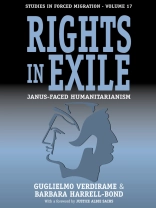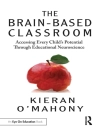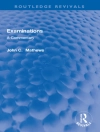Of the estimated 12 million refugees in the world, more than 7 million have been confined to camps, effectively ‚warehoused, ‚ in some cases, for 10 years or more. Holding refugees in camps was anathema to the founders of the refugee protection regime. Today, with most refugees encamped in the less developed parts of the world, the humanitarian apparatus has been transformed into a custodial regime for innocent people. Based on rich ethnographic data, Rights in Exile exposes the gap between human rights norms and the mandates of international organisations, on the one hand, and the reality on the ground, on the other. It will be of wide interest to social scientists, and to human rights and international law scholars. Policy makers, donor governments and humanitarian organizations, especially those adopting a ‚rights-based‘ approach, will also find it an invaluable resource. But it is the refugees themselves who could benefit the most if these actors absorb its lessons and apply them.
Inhaltsverzeichnis
Foreword
Justice Albie Sachs
Preface
Acknowledgements
List of Abbreviations
Introduction
- The setting
- Main movements of refugees into Kenya and Uganda
- Aims and objectives of the research
- Assumptions underlying the research
- Research methods
- Main findings
- A research and advocacy agenda for the future
Chapter 1. Refugee Law and Policy in Kenya and Uganda
- Introduction
- The Legal Framework in Kenya
- The Legal Framework in Uganda
- Refugee policy in Kenya
- Refugee policy in Uganda
- Refugee law-making in fits and starts
- Conclusion
Chapter 2. Getting In
- Introduction
- The influence of donor countries
- The OAU Convention and group recognition
- Admission: standards and procedures
- Legal hurdles to admission
- Ordeals of arrival
- New arrivals and local people
- Conclusion
Chapter 3. Status-Determination Procedures: ‘… and when you go to UNHCR, pray’
- Introduction
- Procedural standards in status determination
- Who is in charge?
- The role of NGOs
- Confidentiality
- Interpreters
- Advocacy
- Standards of evidence
- Decisions
- Exclusion
- Cessation
- Conclusion
Chapter 4. Civil and Political Rights
- Introduction
- Non-discrimination
- Right to Life
- Freedom from torture and from cruel, inhuman, or degrading treatment or punishment
- Freedom from slavery and forced labour
- Liberty and security of the person
- Freedom of movement
- Access to courts and right to fair trial
- Privacy and family life
- Freedom of expression, thought, conscience and religion, and freedom of assembly and association
- Conclusion
Chapter 5. Economic, Social, and Cultural Rights
- Introduction
- Employment
- An adequate standard of living
- The highest attainable standard of physical and mental health
- Education
- Cultural rights
- Conclusion
Chapter 6. Refugee Protection: What Is Going Wrong?
- Introduction
- Host countries
- Donor countries
- Resettlement
- UNHCR
- NGOs
- Conclusion
Conclusions
Bibliography
Index
Über den Autor
Barbara Harrell-Bond (1932-2018), was Founding Director of the Refugee Studies Centre, University of Oxford> After her retirement, she was Visiting Professor at Makerere University and at the American University in Cairo. In 1996, she received the Distinguished Service Award of the American Anthropological Association. She was author of Imposing Aid (Oxford, 1986).












